Related Research Articles

Russian literature refers to the literature of Russia, its émigrés, and to Russian-language literature. Major contributors to Russian literature, as well as English for instance, are authors of different ethnic origins, including bilingual writers, such as Kyrgyz novelist Chinghiz Aitmatov. At the same time, Russian-language literature does not include works by authors from the Russian Federation who write exclusively or primarily in the native languages of the indigenous non-Russian ethnic groups in Russia, thus the famous Dagestani poet Rasul Gamzatov is omitted.

Varlam Tikhonovich Shalamov, baptized as Varlaam, was a Russian writer, journalist, poet and Gulag survivor. He spent much of the period from 1937 to 1951 imprisoned in forced-labor camps in the Arctic region of Kolyma, due in part to his support of Leon Trotsky and praise of writer Ivan Bunin. In 1946, near death, he became a medical assistant while still a prisoner. He remained in that role for the duration of his sentence, then for another two years after being released, until 1953.

Daniil Ivanovich Kharms was an early Soviet-era Russian avant-gardist and absurdist poet, writer and dramatist.

Buryat or Buriat, known in foreign sources as the Bargu-Buryat dialect of Mongolian, and in pre-1956 Soviet sources as Buryat-Mongolian, is a variety of the Mongolic languages spoken by the Buryats and Bargas that is classified either as a language or major dialect group of Mongolian.
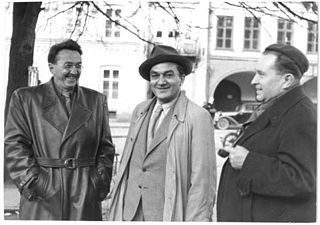
Vladimír Holan was a Czechoslovak poet famous for employing obscure language, dark topics and pessimistic views in his poems. He was nominated for the Nobel Prize in the late 1960s.

Samuil Yakovlevich Marshak was a Soviet writer of Belarusian Jewish origin, translator and poet who wrote for both children and adults. He translated the sonnets and some other of the works of William Shakespeare, English poetry, and poetry from other languages. Maxim Gorky proclaimed Marshak to be "the founder of Russia's (Soviet) children's literature".
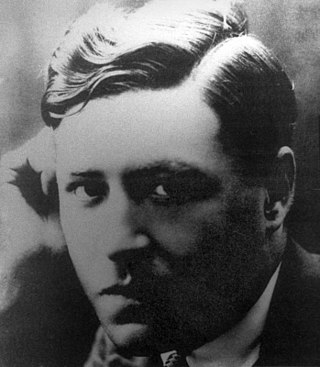
Josep Pla i Casadevall was a Spanish journalist and a popular author. As a journalist he worked in France, Italy, Britain, Germany, and the Soviet Union, from where he wrote political and cultural chronicles in Catalan and Spanish.

Samad Vurgun was an Azerbaijani and Soviet poet, dramatist, public figure, first People's Artist of the Azerbaijan SSR (1943), academician of Azerbaijan National Academy of Sciences (1945), laureate of two Stalin Prizes of second degree, and member of the Communist Party of the Soviet Union from 1940.

Tsyben Zhamtsaranovich Zhamtsarano, also known as Jamsrangiin Tseveen, was a Buryat scholar and folklorist. He was a collector of Mongol epics, songs, and stories; researcher into shamanism; and translator of European literature into Mongolian. A nationalist, he was a leading figure in Mongolian politics and academia in the 1920s. In 1921, Zhamtsarano founded the Institute of Scriptures and Manuscripts, today the Mongolian Academy of Sciences. He was exiled to the Soviet Union in 1932, and in 1937 was arrested during the Stalinist Great Purge.

Nils Artur Lundkvist was a Swedish writer, poet and literary critic. He was a member of the Swedish Academy from 1968.
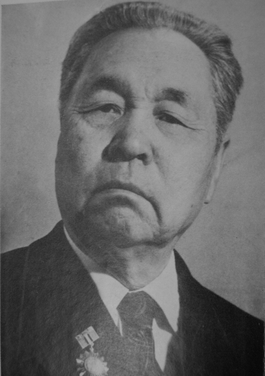
Iasyr Shivaza, also known as Xianma, was a Soviet poet, writer, linguist, translator, and social activist, known for his contributions to Dungan art and culture.
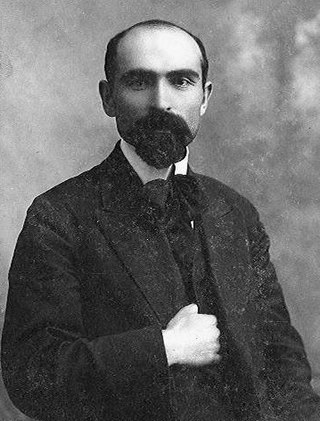
Derenik Karapeti Demirchian was a Soviet and Armenian writer, novelist, poet, translator and playwright. He began his career as a poet, but later transitioned into prose writing. He was a prolific writer whose works deal with a wide variety of subjects. He is perhaps best known for his historical novel Vardanank (1943), which is a dramatization of the 5th-century Armenian rebellion led by Vardan Mamikonian.

Otto Manninen was a Finnish writer, poet, and a celebrated translator of world classics into Finnish language. Along with Eino Leino in the early 20th century, he is considered as a pioneer of Finnish poetry. Manninen translated the works of Homer, Sophocles, Euripides, Heine, Ibsen, Petőfi and Runeberg into Finnish.
Croatian literature refers to literary works attributed to the medieval and modern culture of the Croats, Croatia, and Croatian. Besides the modern language whose shape and orthography were standardized in the late 19th century, it also covers the oldest works produced within the modern borders of Croatia, written in Church Slavonic and Medieval Latin, as well as vernacular works written in Čakavian and Kajkavian dialects.

Liudas Gira was a Lithuanian poet, writer, and literary critic. His is noted for his early poetry, which resembles traditional Lithuanian folk songs. Gira was active in cultural and political life, gradually shifting towards communism in 1930s. He supported the Soviet Union and helped to transform independent Lithuania into the Lithuanian Soviet Socialist Republic. His son, Vytautas Sirijos Gira, is also a known poet and writer.

Semyon Izrailevich Lipkin was a Russian writer, poet, and literary translator.
Turkmen literature comprises oral compositions and written texts in the Old Oghuz Turkic and Turkmen languages. The Turkmens are direct descendants of the Oghuz Turks, who were a western Turkic people, who formed the Oghuz branch of the Turkic language family.
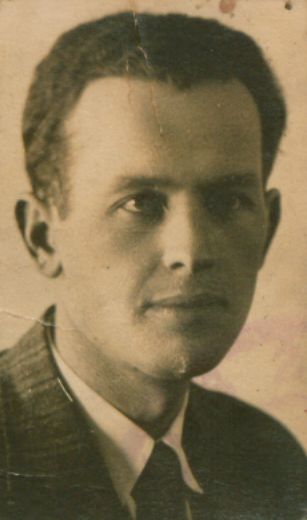
Teofilis Tilvytis was a Soviet Lithuanian poet and writer. He was awarded the Stalin Prize in 1951 and recognized as the People's Poet of the Lithuanian SSR in 1954.
Solbon Dondupovich Angabaev (1931-2001) was a Soviet poet of Buryat origin. He was born in Kurumkansky district, Buryatia in 1931.
Gamzat Tsadasa was a Avar poet from Dagestan. He is the father of famous Russian writer Rasul Gamzatov.
References
- 1 2 "Abiduev, Bavasan Dorzhievich". The Great Soviet Encyclopedia. 1979.
- ↑ Marzluf, Phillip P. (2023), "Byambyn Rinchen's and Tsendiin Damdinsüren's Socialist Travel Writing: Nationalist, Internationalist, and Cosmopolitan Strategies", Travel Writing in Mongolia and Northern China, 1860-2020, Amsterdam University Press, pp. 111–138, ISBN 978-94-6372-626-9 , retrieved 12 January 2024
- ↑ "Абидуев Бавасан - Soyol.ru - Культура и искусство Бурятии".
- ↑ "Как родному брату выдающегося бурятского писателя не дали "Героя Советского Союза"".